David Vining's Blog, page 12
June 13, 2025
A Hen in the Wind
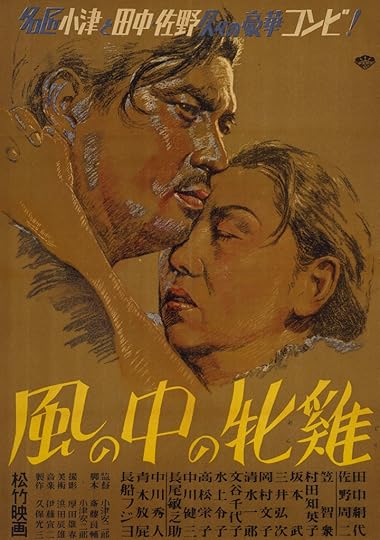
For a while, I’ve felt like Ozu’s titles would work well as lines in haikus. Well, the English versions. Maybe the Japanese originals also retain the right number of syllables, but A Hen in the Wind is five syllables, like the opening line of a haiku. It’s also an evocative image that instantly calls to mind potential symbolism, symbolism that follows through from the film itself, a woman caught up in circumstances outside of her control, trying to find some way to land. I do think the film,...
June 12, 2025
Record of a Tenement Gentleman
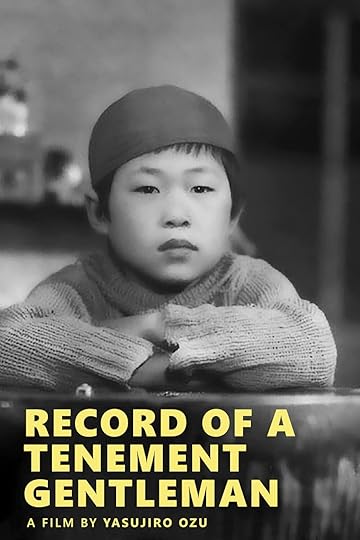
Apparently, this title is a mistranslation of the original Japanese title which would more closely translate to A Who’s Who of the Backstreets, which, I think, fits better. Ozu’s first post-war film, after a pause of five years where he was sent to Singapore to make a propaganda film (which never finished on purpose), Record of a Tenement Gentleman is really the story of Japan as it picks itself back up after defeat in war. It completely sidesteps the war part except for a couple of mentions...
June 11, 2025
There Was a Father
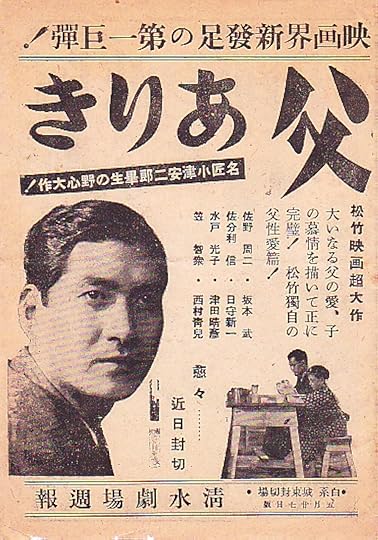
This is a very good example of Ozu’s quiet power. It’s a very simple story with a very small cast of characters. There’s hardly any emotion shown. And yet, the small movements of plot end up creating this wonderful well of emotion by the end. Sparsely told with little adornment, There Was a Father is a sneaky little emotional gut punch.
Shuhei (Chishu Ryu) is a widower with a son, Ryohei (Haruhiko Tsuda as a child and Shuji Sano as an adult). He teaches math to high schoolers and decides ...
June 10, 2025
So, this is 40…
Let me celebrate with gifs from Judd Apatow’s This is 40 that define my life:



And, most importantly:

Of course, I then here the Taskmaster, Greg Davies, telling me to:

Brothers and Sisters of the Toda Family
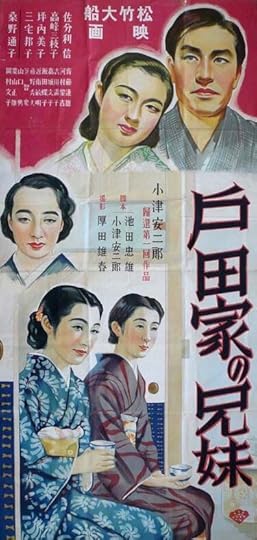
There’s a three year gap between Ozu’s previous film, What Did the Lady Forget?, and this, and it’s because Ozu went to war in China. He was part of a chemical weapons unit, was stationed in or near Nanking, and…probably committed war crimes. Heck, just the chemical weapon part is a war crime. I wouldn’t bring it up, but one character does have a line about needing to put people in China in line, so…Anyway, the movie itself is another family drama, well written and performed in Ozu’s increas...
June 9, 2025
What Did the Lady Forget?
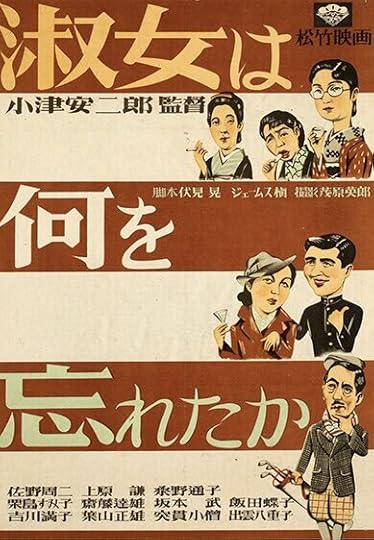
A small film about an outsider discovering the unspoken rules of a long-standing marriage, What Did the Lady Forget? is a little thing with quiet emotions that don’t dig very deep but provide some nice pathos by the end. It’s something like a ditty on Ozu’s part, nothing too challenging but something that feels like he could pull off in his sleep. It’s not his most memorable film, but at 71 minutes long, it’s one of his shortest and fills that time well.
Komiya (Tatsuo Saito) is a profess...
June 6, 2025
The Only Son
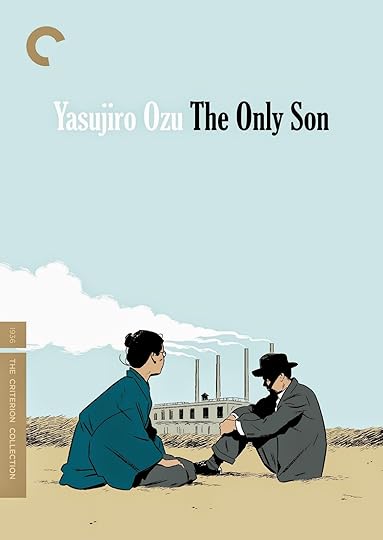
I’ve been saying for a while that Ozu really needed the sound era to come to Japan, and in 1936, he was finally able to make a sound film (though, reportedly, the lost Until the Day We Meet Again was a sound film, but it’s lost and didn’t contain dialogue being only music and sound effects). He was too heavily relying on dialogue in his late silent films, his writing requiring a lot of specificity in character interactions that ended up using intertitles to break up the action and bring the ...
June 5, 2025
An Inn in Tokyo
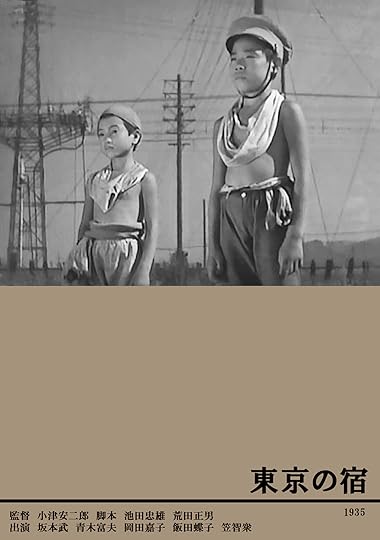
Ozu’s final surviving silent film (College is a Nice Place seems to be both silent and lost), An Inn in Tokyo feels more like a return to socially conscious filmmaking from the Japanese director, more bluntly dealing with poverty as a central motif than he had in A Story of Floating Weeds where the poverty felt more situational and tied to character. Ultimately, the film ends up working very well, but An Inn in Tokyo kind of feels like Ozu taking a step backwards, trying to be timely rather ...
June 4, 2025
A Story of Floating Weeds
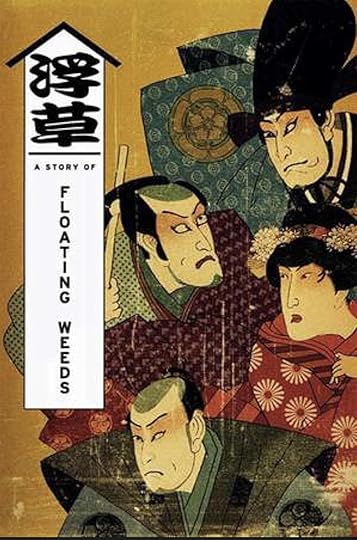
Ozu had been making good movies for a while. He’d been doing things in those movies that were distinctly Ozu consistently, but A Story of Floating Weeds is where things really seem to gel completely in that well-known Ozu-way. Previously, he’d either been working between genres (gangster movies, predominantly), leaning too far into melodrama (like in A Mother Should be Loved), or using comedy that bordered on slapstick. I don’t think most of these things are bad, or that his earlier films ar...
June 3, 2025
A Mother Should Be Loved
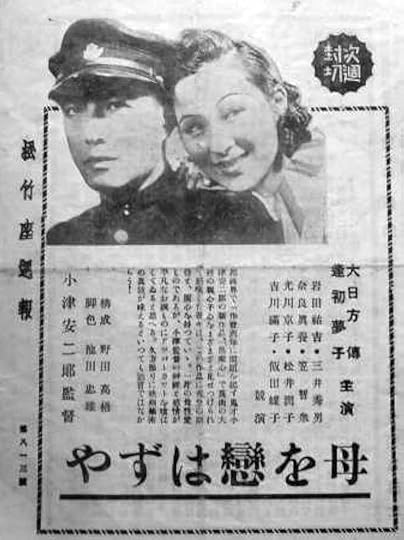
Partially lost, A Mother Should Be Loved continues Ozu’s tap-dancing between the melodrama obviously popular in Japan at the time and his own quiet mode of making human stories. I’m a bit muted on the reaction to the film overall, and I’m not sure if it has anything to do with the missing opening and closing reels. If the descriptive texts are anything to go buy, they’re mostly establishing action and reflective action at the beginning and end without touching on the actual drama. I think th...



